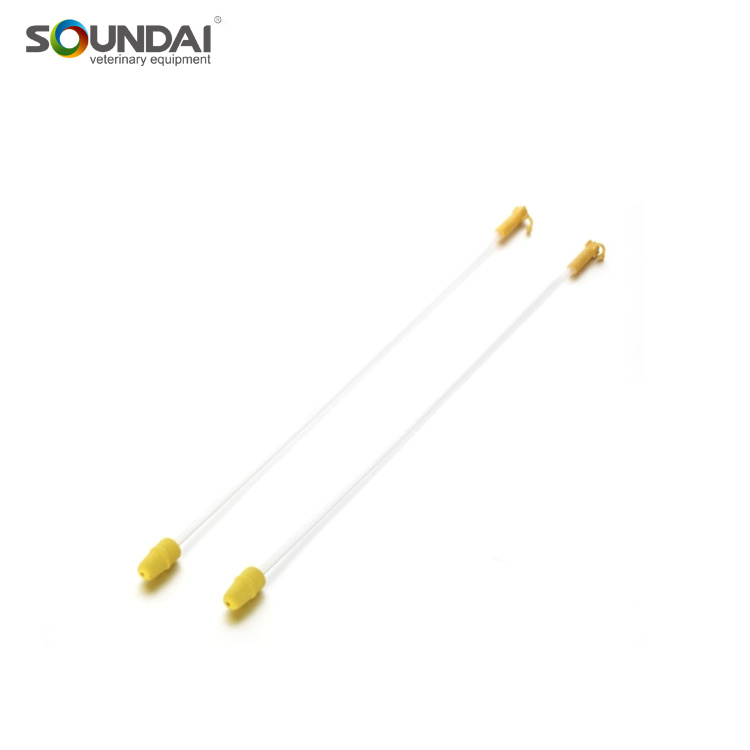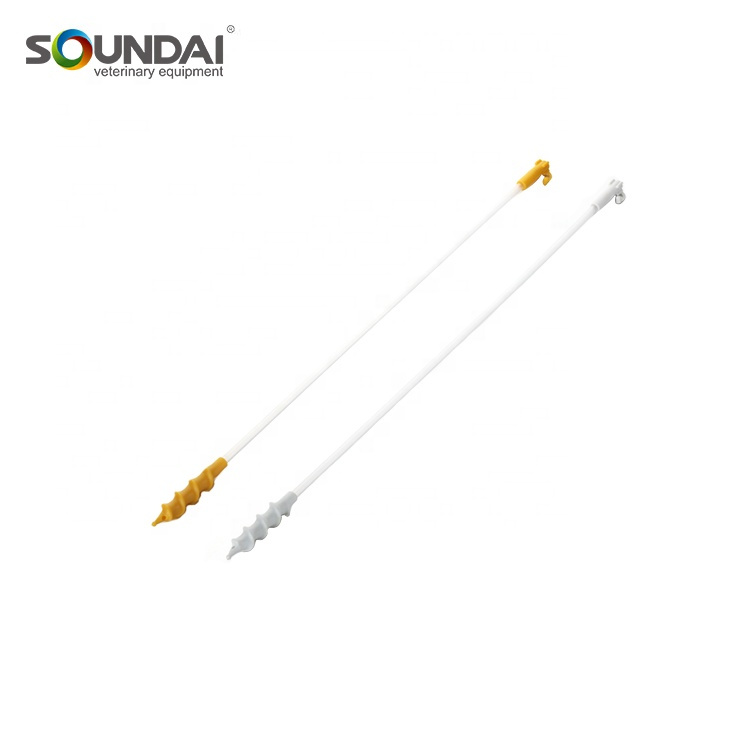Artificial insemination is an assisted reproductive technology widely used in the field of animal reproduction. Artificial insemination can selectively transfer high-quality germplasm to offspring through directed mating to improve animal breed characteristics and production performance. Difficulty in reproduction: Some animals, especially those with low reproductive capacity or reproductive disorders, may not be able to reproduce naturally. animal artificial insemination provides an effective method to solve these problems and promote the reproduction of offspring of these individuals. Maintaining Genetic Diversity: The genetic diversity of animal populations is critical to their survival and adaptation to their environment. artificial insemination equipment can allow gene exchange between populations, avoiding genetic decline and gene loss. Protection of endangered species: For endangered species, artificial insemination can be used as one of the protection measures to help increase the number of species and avoid the risk of extinction. Scientific research purposes: artificial insemination can be used in scientific research fields, such as the study of animal reproductive physiology, cell division and gene transmission.
-

SDAI16 Sow’s vas deferens clip and vas de...
-

SDAI01-1 Disposable Small Sponge Catheter Witho...
-

SDAI01-2 Disposable Small Sponge Catheter With ...
-

SDAI02-1 Disposable Medium Sponge Catheter With...
-

SDAI02-2 Disposable Medium Sponge Catheter With...
-

SDAI03-1 Disposable Spiral Catheter without end...
-

SDAI03-2 Disposable Spiral Catheter with end plug
-

SDAI04 Deep Intra Catheter For Pig Insemination
-

SDAI05 Artificial Insemination Sheath-PP Pipe
-

SDAI06 Artificial Insemination Gun without lock
-

SDAI07 Artificial Insemination Gun with lock
-

SDAI08 Animal Semen Bottle With Cap
